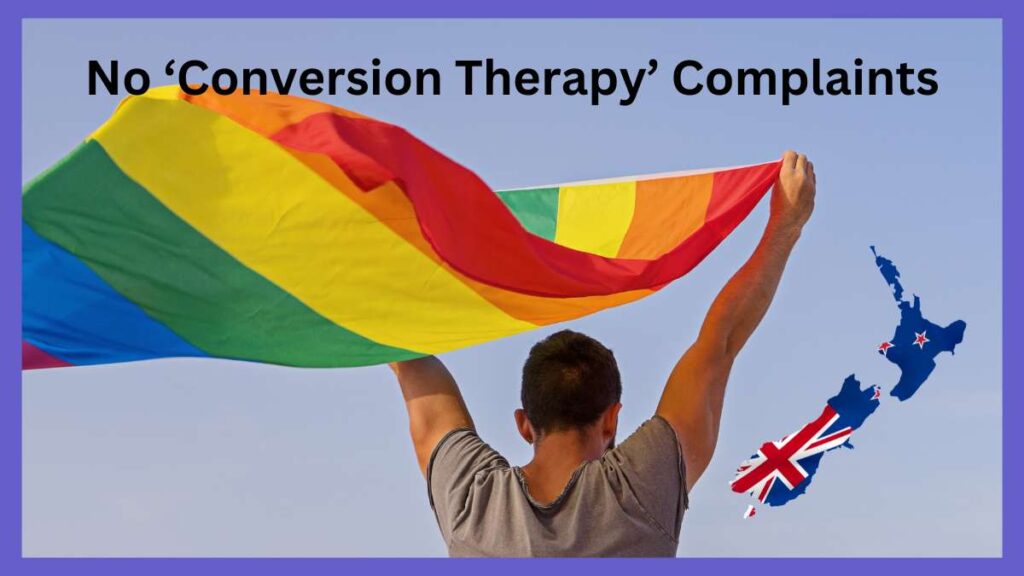Here’s the latest media release from Family First NZ …
MEDIA RELEASE
14 May 2024
The $2.2m taxpayer-funded complaints centre set up by the Human Rights Commission for receiving complaints about ‘conversion therapy’ has struggled to obtain any formal complaints about the use of ‘conversion therapy’ in the two years since the new law was passed, despite significant advertising about its services, and they have referred no complaints to the Police.
The NZ Police have also acknowledged that they have received no direct complaints which have warranted an investigation over the past two years.
This is consistent with numbers before the law was passed. The Human Rights Commission in response to an Official Information Act request from Family First NZ in March 2021 admitted that there had only been one informal complaint and no formal complaints in the past 10 years in relation to ‘conversion therapy’. The Office of the Health and Disability Commissioner, in response to a similar inquiry, was also unable to provide any specific numbers. An informal search of 1400 decisions dating back to 1997 suggests that there have been no complaints around ‘conversion therapy’. Even some of the politicians who supported the new law admitted they’re also not aware of any cases of involuntary ‘conversion therapy’ in their communities.
“The taxpayer via the Human Rights Commission has spent $2.2m looking for a solution to a problem that doesn’t exist,” says Bob McCoskrie, CEO of Family First NZ.
“But what the politicians and these activist groups have done is make it difficult for parents, counsellors and therapists to support troubled adolescents who identify as ‘trans’ or ‘gender diverse’.”
As an Australian family law and child protection expert warned during the debate two years ago, some mental health professionals will refuse to see young patients with sexual orientation or gender identity issues who have other serious mental health concerns. This could lead to an increase in the mental health burden on already very troubled young people, and may lead to increased suicide attempts.
Parents who want to protect their children who are struggling with gender identity issues risk prosecution and jail sentences under the law. This is leading to huge distress for parents who are already experiencing very difficult circumstances. The recent NHS report by Dr Cass suggests that concerned parents have been right all along.
In response to an Official Information Act request on the 2nd anniversary of the controversial law, the Human Rights Commission’s new “Conversion Practices Response Service” has admitted that of the enquiries to the service, none have proceeded to a formal complaint, and there have not been any forma complaints about receiving non-affirming medical care or counselling services.
During the select committee process considering the new law, the Ministry of Justice’s Regulatory Impact Statement admitted that there was little evidence of ‘conversion therapy’ actually happening – using phrases “lack of baseline data” “limited data” “no data” “no reliable data”. It was very reliant on media reports only – which is not that reliable.
We also asked them what engagement had there been over the past 2-3 years by the HRC with individuals who made submissions against the new law and who had positive experiences of receiving counselling to deal with unwanted sexuality and gender confusion issues?
Despite claiming that they wanted to ensure that they “regularly hear from diverse lived experience voices”, they admitted, “The Commission has not knowingly had any engagement with individuals who made submissions against the new law and who had positive experiences of receiving counselling to deal with unwanted sexuality and gender confusion issues.”
There is no acknowledgement from the Human Rights Commission that some people personally and willingly desire and choose change in their sexuality and their gender dysphoria. Their rights aren’t important according to the Human Rights Commission.
All New Zealanders should be protected from coercive, abusive or involuntary psychological or spiritual practices. However, participation in psychological assessments, counselling sessions, prayer meetings and other therapeutic practices is almost always an expression of voluntary behaviour and personal freedom. Under this new law, people are prevented from getting help to live the lifestyle they choose. And parents could be criminalised for encouraging their children to embrace their biological sex.
Ironically, while gender and sexuality is supposedly ‘fluid’, activists want the law to stipulate that it can only go in the direction they approve. Conversion therapy is still legal. It’s practiced in schools by groups such as InsideOut and Rainbow Youth.

